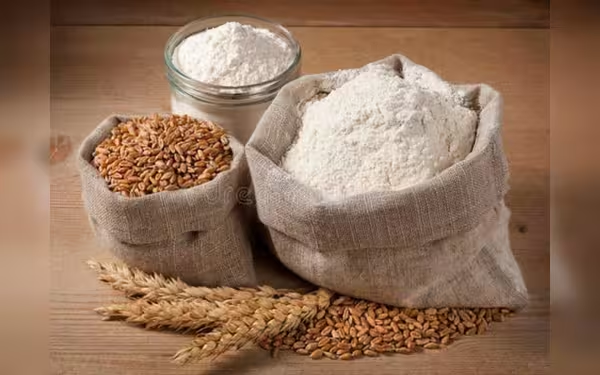Tuesday, July 2, 2024 03:55 PM
Federal Minister Raises Concerns Over Wheat Imports
- Significant wheat imports in Pakistan during current government's tenure
- Confirmation of import of insect-infected wheat prompts inquiry
- Imported wheat quantities and costs raise oversight questions
 Image Credits: nation_pk
Image Credits: nation_pkThe ongoing wheat imports in Pakistan, including insect-infected wheat, raise concerns about oversight and quality control in the supply chain, impacting food security and public health.
Wheat import in Pakistan has been a significant topic of discussion, especially during the initial months of the current government's tenure. The data reveals that a substantial amount of wheat, totaling 778,000 metric tons valued at $231.32 million, was imported during the first two months. Surprisingly, this import trend persisted even during the traditional wheat harvesting months, with notable quantities being brought in.
As the months progressed, the import figures remained substantial. In March 2024, 691,136 metric tons of wheat were imported, amounting to $204.80 million. This was followed by an additional 86,800 metric tons in April 2024, valued at $26.52 million. The cumulative total for the first ten months of fiscal year 2023-24 stood at a staggering 3,557,157.13 metric tons, with a total cost of $1.013 billion.
One concerning aspect highlighted by the Federal Minister for National Food Security and Research was the confirmation of the import of insect-infected wheat. This revelation prompted an immediate inquiry into the matter. It is noteworthy that more than 22% of the imported wheat arrived during the current government's term, raising questions about the oversight and quality control mechanisms in place.
The ongoing import of wheat in Pakistan, coupled with the recent revelations of insect-infected wheat being brought into the country, underscores the importance of stringent quality checks and monitoring processes. As a staple food item for millions, the integrity of the wheat supply chain is paramount for ensuring food security and public health.













